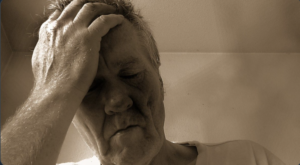By Roberta Heale, Associate Editor EBN. @robertaheale. @EBNursingBMJ
UPDATE: BMJ has posted an article about “LongCOVID” which is the experience of ongoing symptoms once the acute phase is over. Their article can be read here: https://www.bmj.com/content/370/bmj.m3026
Be sure to check out this handy infographic which is embedded in the article. Long Covid Infographic
If you’re like me you look for the numbers of new COVID cases in your area, region, country and world on a daily basis, along with the number of deaths. What I haven’t paid much attention to until lately, are the numbers of recovered cases. The difference between new cases, deaths and recovered cases is the number of active cases, yet recovery hasn’t been clearly defined. “Health agencies are still figuring out how long it typically takes for a person’s COVID-19 symptoms to go away, and their processes for following up on infected people may vary.” The statistics have me thinking about what recovery from COVID 19 looks like and what impact it will have on families, communities and nursing.COVID stats
recovery hasn’t been clearly defined. “Health agencies are still figuring out how long it typically takes for a person’s COVID-19 symptoms to go away, and their processes for following up on infected people may vary.” The statistics have me thinking about what recovery from COVID 19 looks like and what impact it will have on families, communities and nursing.COVID stats
We already know a great deal about the impact of hospitalization on patient’s long-term mental and physical health, especially those who have been in ICU. Post-Intensive Care Syndrome, or PICS, is a condition that many people who have been in ICU develop. It includes generalized and profound weakness, cognitive changes, loss of motivation, insomnia and other mental health issues, such as depression and PTSD. It impacts 33% of those who have been on ventilators and 50% or more of people who have been in ICU for a week or longer. Up to 50% of PICS survivors return to work within a year, but some never fully recover. PICS
One study followed patients with acute respiratory distress syndrome (ARDS) for five years. The findings showed that of those who had been in ICU, not surprisingly younger patients, recovered better than older ones. However, even after 5 years, patients who had been in ICU had only reached 76% of the expected physical function. ARDS long term effects
We are now learning that many people who have survived COVID 19 continue to suffer, even if they weren’t hospitalized. They are debilitated and extremely weak. Since older people appear to be more likely to contract COVID 19, and typically have worse symptoms than their younger counterparts, a long and difficult recovery for many seems likely. We know that PICS may be prevented if family are able to visit to help the patient stay orientated and focused. Not only is this not happening during COVID-19, it is compounded by the PPE that the hospital staff must wear. This is the case for any person with COVID-19, whether they convalesce in ICU, hospital ward, or at home. Maintaining a positive and hopeful attitude during hospitalization, and when recovering from any illness is important to survival and a return to optimal functioning, but this is very difficult to achieve during this pandemic. Hope during hospitalization
While we continue to battle COVID 19, and work to prevent new cases, we have to turn our attention to those who have recovered from the virus. We may not have research demonstrating the long-term effects of COVID 19, but the evidence we do have about hospitalization, especially in ICU, as well as the impact of social isolation when ill all point to the possibility of tremendous, ongoing suffering.
The health care system can help. There should be formal follow up with those who have had positive COVID tests. Assessments should cover their levels of fatigue, ability to manage activities of daily living, screen for depression, insomnia and other mental health issues. A review of patient supports is warranted. Mobilization of all relevant resources should come next, including home care, counselling and more.
The goal of the response to the pandemic is to reduce morbidity and mortality as much as possible. However, the overarching goal has to be more than recovery from the virus. Although returning to normal may never be possible, achieving optimal recovery and functioning should be the ultimate objective.